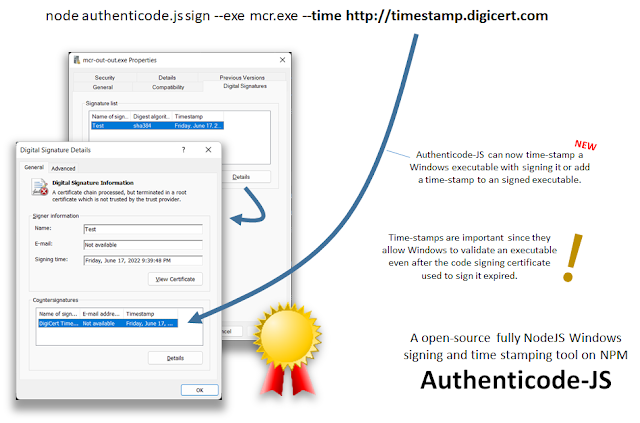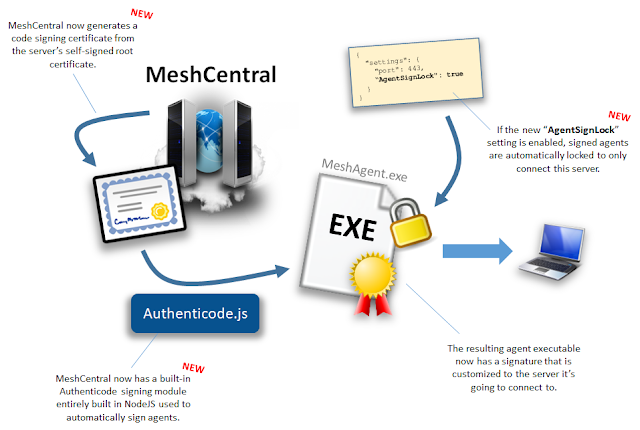MeshCentral - Authenticode Time Stamp, Resources, Assistant Lock, Intel® SM, Router

MeshCentral is an open source, web based, feature packed computer management web site. MeshCentral development is continuing swiftly, and the blog posts are not keeping up with the number of features being released, so, this week’s post includes plenty of unrelated features and improvements that are making MeshCentral most customized and more secure than ever before. We have many improvements to the Authenticode feature we announced a few weeks back, code to change the resource strings within an executable, MeshCentral Assistant now has the server locking feature, Intel® Standard Manageability support was improved and more improvements to MeshCentral Router. It’s been a crazy month so far and it’s not over. In detail: Authenticode-JS Time Stamping . A few weeks back we released Authenticode-JS, the first ever fully NodeJS tool for code signing Windows executables. This last week, we improved this tool to add support for certificate authority time stamping. This allows an executable tha
